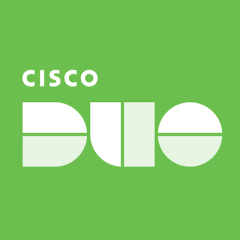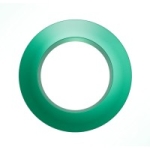What is our primary use case?
We use it citywide. I work for a city, local government, and we implemented it during the pandemic.
We support it for remote access to our network. Every city employee is required to use it, including the police and fire departments. However, it's hard to concretely say if the solution has helped reduce the risk of breaches in one way or another.
Apart from that, we focus on user education in cybersecurity and provide training to our end-user population to heighten awareness. This is in addition to the two-factor authentication, so we don't solely rely on that.
How has it helped my organization?
Duo Security has improved our organization from a security standpoint. The two-factor authentication has become a requirement in most cases. It is specifically required by cybersecurity insurance.
Not only are we doing it for requirement purposes, but it also gives us an additional layer of confidence. Duo Security's additional layer of security gives us added confidence that our network will be less likely to get hacked, compromised, or otherwise.
Moreover, we're very satisfied with the solution for helping secure our infrastructure from end to end. It definitely gives us an added layer of our confidence knowing that two-factor authentication is implemented. In our organization, network-wise, the confidence level is fairly high, and we're happy with it.
The way we involve the end users is with their mobile devices and mobile phone numbers. Once they do get involved, we are pretty confident that they are being reached out to through the number that we have in the system for them, and there's really no reason on our end to doubt the validity of those authentication requests when they come through. We trust Duo Security for every access request, no matter where it comes from.
Duo Security has become essential to our environment, considering today's time when our workforce is becoming more and more mobile.
Duo Security helped our organization improve its cybersecurity resilience. It has given that added layer of security and keeps the awareness on the user's end as well.
What is most valuable?
It's easy to use, frankly. All it takes really is for the end user to download the app. For me, I have an Apple Watch; I don't even have to wait for my phone. I can accept the prompt right there and just be on my way.
Moreover, we are comfortable and have high confidence in the solution's user authentication; device verification can prevent identity-based attacks.
What needs improvement?
One of the challenges was for the police force. A lot of them, at first, weren't keen on using their personal cell phone for, quote-unquote, city business. As a city, we require them to download an app for two-factor authentication. There is a little bit of apprehension for some users thinking, well, "How do I know this app is not collecting personal information from my personal device?" was the only obstacle we ran into. Overall, satisfaction is good.
To mitigate this problem, there was an option where the city would choose to just go with utilizing the app. There's another option where you can get a text message as opposed to having to download the app and accept what the app has on it.
Buyer's Guide
Cisco Duo
February 2026
Learn what your peers think about Cisco Duo. Get advice and tips from experienced pros sharing their opinions. Updated: February 2026.
881,821 professionals have used our research since 2012.
For how long have I used the solution?
I have been using Duo Security for three years.
What do I think about the stability of the solution?
Duo Security is a stable solution.
What do I think about the scalability of the solution?
We never encountered any issues in terms of scalability.
How are customer service and support?
The customer service and support have been very good. We haven't had to call them many times. They've been able to assist every time there was an issue.
The responses have always been timely, and I haven't gotten any complaints from our security manager.
Which solution did I use previously and why did I switch?
We used a different solution but had it in limited use only for our public safety team. That was a requirement at the time because of the type of information that they had access to. We were looking for something versatile.
With Duo Security, the easier user access and user adaption were a little easier. We felt the solution was a little clunky at times, and we are already in the Cisco ecosystem, and that's one of their products. So we decided that was the best solution at the time. That's why we switched to Duo Security.
How was the initial setup?
Implementation was fairly easy. Moreover, once you have it implemented, it's very minimal.
Duo Security doesn't require a lot of maintenance. From that standpoint, the solution has freed up time. However, it's not something that we had beforehand. In other words, it's not necessarily alleviating work. However, it is easy to manage.
What's my experience with pricing, setup cost, and licensing?
The pricing was a lot more than what we were paying for our previous solution. However, our previous solution only covered two out of the sixteen departments within the city.
It’s a bit of a pie chart in that sense but we understood that with Duo Security, we were deploying it on a broader scale.
Overall, the pricing was higher than our expectations, but considering the circumstances during the pandemic and the increased demand, we understood the importance of making the right decision and moving forward with the best product.
I would say we are happy with it. However, I haven't conducted any recent market surveys to compare pricing, so it's difficult to make a definitive statement. Ultimately, what matters most is the satisfaction of our end users, and in that regard, it is currently very high.
Which other solutions did I evaluate?
We did look at some other products. We had a security manager who was responsible for conducting the necessary research and legwork. However, he did present us with a few different solutions, and our network manager was also involved in exploring options. Ultimately, Duo Security was selected as the preferred solution.
And also, what happened right before then, we had attended Cisco Live, had been exposed to Cisco Duo, and really liked what we saw. So we went into it with a bit of bias, to be honest, because we already saw it.
What other advice do I have?
Duo Security is a great solution. The adoption and learning curve for the end user is low, in our opinion.
Overall, I would rate Duo Security an eight out of ten.
Which deployment model are you using for this solution?
Public Cloud
If public cloud, private cloud, or hybrid cloud, which cloud provider do you use?
Microsoft Azure
Disclosure: My company does not have a business relationship with this vendor other than being a customer.



















Hi Ata! It looks like you can integrate with Sentinel using the Cisco Duo Security Data Connection for Sentinel: https://help.duo.com/s/article...